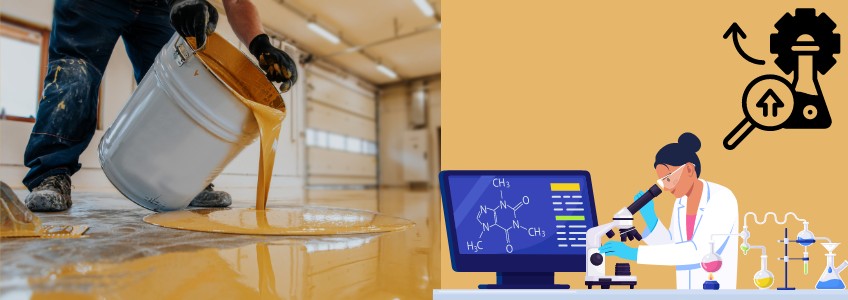
To optimize operations and increase efficiency in the polymer shopfloors, robust strategies can be employed, that will also promote the overall growth of the company.
7 minutes read
Introduction
A shopfloor refers to the place or floor in a factory where the production work is carried out. So, achieving operational excellence in shopfloor of the polymer industry involves not only process optimization and enhancement of product quality but also reduction or elimination of waste. For the company to be successful, boosting the efficiency of the polymer shopfloor is of utmost importance.
How to boost efficiency in the Polymer shopfloor?
Certain strategies can be adopted to achieve operational excellence and boost efficiency in the production segment of the polymer industry. However, it should also be noted that these strategies should align with the industry’s goals and principles.

1. Implementation of the Lean Methodology
Even though the lean methodology originated in some different industry sectors, it can also be effectively implemented in the polymer shopfloors. The lean methodology’s central aim is the maximization of customer value by minimizing or eliminating waste and unnecessary steps from the production processes.
There are certain key principles of the lean methodology that can be employed here. The Just-in-Time (JIT) inventory refers to the supply chain management and ensures the reduction of inventory costs and the production of goods as per need. Lean methodology also involves workplace organization, and total productive maintenance (TPM) that includes strategies to reduce equipment downtime and improve overall production.
2. Employing a Quality Management System (QMS)
A QMS is necessary to track and analyze both the product quality and the customer feedback. In the polymer industry, a QMS should not only clearly define the objectives and quality standards of the products but also ensure that the products manufactured should meet the centralized quality standards.
For achieving operational excellence, it is also important that the products are inspected for quality checks and that the QMS should be regularly reviewed to address the issues identified and also improve the system.
3. Using Data Analytics
Data Analytics can be used to gain insights into the production processes in the polymer industry. The data collected can be analyzed to identify areas that need improvement and also to optimize the efficiency of the overall production process.
The polymer performance metrics, based upon which decisions are made regarding production, include cycle time, defect rates, inventory level, equipment downtime, turnover, repair costs, etc.
4. Adopting new technology
In Industry 4.0, staying technologically updated is of utmost importance. In polymer shopfloors, employing newer technology can improve quality, efficiency and also streamline processes.
Enterprise resource planning (ERP) systems can assimilate all the resources and provide real-time data of the company, manufacturing execution systems (MES) are used to control operations of the shopfloor and Internet of Things (IoT) sensors can be implemented to monitor equipment performance and identify potential faulty areas.
5. Training the Employees
To achieve operational excellence in the production process of the Polymer industry, educating and training the employees according to their relevant job roles is necessary.
For the employees to work efficiently and bring in revenue, they should be provided with proper training and development programmes. Promoting healthy work environment and conducting proper team-building activities also play a vital role in improving the operational excellence in shopfloors of the polymer industry.
6. Change is the only constant
The practice of continuous or constant improvement is necessary because the polymer market trends are variable as they keep changing with time. So, to achieve operational excellence in the shopfloor and improve its efficiency. it is important to implement methodologies like Six Sigma that provide a structured approach to process optimization.
Even inputs from the employees regarding areas of improvement, and new ideas about various processes or stages of production form a significant part of this culture of constant enhancement.
Conclusion
Therefore, the polymer shopfloor can boost its efficiency by employing the above-mentioned strategies. These will also reduce the costs incurred during production, improve the overall performance of the company and optimize productivity. So, due to the dynamic nature of the polymer industry sector, continuous adaptation is a key to surviving among the changing market demands and trends.
